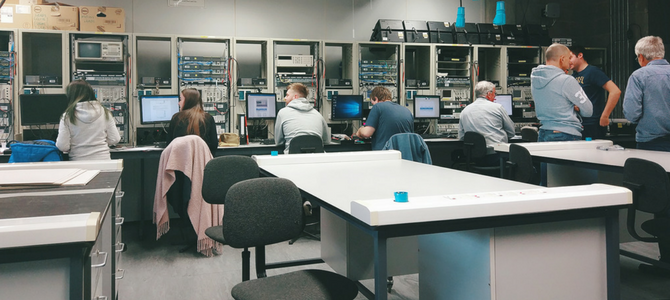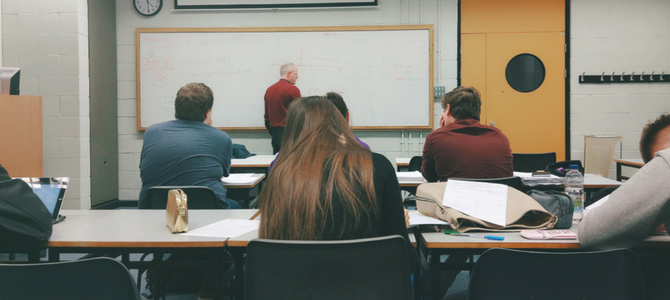Thinking of making the trip from East to West to study abroad? Electronic Engineering student and TU Dublin Tallaght Campus Chinese Ambassador Ruiqi shares some key differences between studying in Ireland and China.
My friend Suzen is also studying Electronic Engineering and has been studying in Ireland for just three months. She always worries about her course and comes to me for help. “Oh my god I find it hard to study here. It’s so different from studying in China.’ she says, “I feel nervous all the time. There are lots of labs to do and lots of reports to write. I didn’t do this much practical work in China.” My response? I often burst into laughter and tell her, “don’t panic! Just take everything step-by-step!
Educational style and structure varies from teacher to teacher, state to state, and inevitably from country to country. Undoubtedly there are lots of differences between studying in Ireland and China due to fundamental realities of two countries and unique education system in China. I’ve been in Ireland for two years and in these two years, almost every lecturer and every Chinese student I meet are interested in these differences.

Student-centred learning
The first day I entered the classroom at TU Dublin Tallaght Campus (formerly IT Tallaght), I saw students worked to different versions of the timetable. I was puzzled! Then I realised that our class is separated into many groups. In my college, the classroom sizes are small and lecturers’ typically teach a maximum of 20 students, whereas, in China, teachers are always responsible for anywhere between 30 to 50 students. As a result, and due to a smaller class size, the lecturer’s focus can be on individuals with an emphasis on ‘one-on-one’ student development. In addition, breaking a class into groups can make a personal schedule more flexible. For example, if you work part-time or are undertaking an internship during the academic year and are unable to attend your group class, you may have an option to attend the class tomorrow with another group. If you study in China, unfortunately, you will fall behind. The system in Irish colleges benefits students a lot and is very much student-centred.

Get the grades
The marking system in my college is different from the Chinese process. In China, we take exams very seriously because exams determine everything. In my senior school, teachers are so utilitarian that they don’t want to teach anything that won’t appear in exams. Our final grade only depends on mid-term exams and final exams. Focusing on exams and results isn’t a bad thing because pressure from exams and marks can inspire students’ to study hard but, the disadvantage is that after exams, students are more likely forget lots of things! At TU Dublin Tallaght Campus, the final grade consists of not only exams but also assignments and practical work, which seems more reasonable and rounded. We have many labs, we build and test circuits by ourselves, write reports, receive feedback from lecturers and it’s these marks that occupy important parts of our final grades. Combining labs with exams enables us to gain practical skills and strengthen our understanding of theoretical knowledge.

A roof over your head
Last but not least, the accommodation for students in Chinese Universities is totally different from the Irish system. With the aid of government and a huge amount of financial support, nearly every university in China is allowed to build their own apartments which have the capacity for thousands of students. This means that the majority of Chinese college students live on campus. Living in a dormitory has many advantages including lower rent and convenience. Living on campus gives you the opportunity to meet dozens of new students and get much-needed support during difficult times. In Ireland, most international students live off-campus. This means we need to overcome a series of problems including finding an acceptable home-stay family or an apartment and pay much higher rents. However, living off campus has its advantages as well. We can buy foods in supermarkets and cook for ourselves, which is healthy and fun. Students who live in homestay families are able to communicate with locals and as a result, their listening and speaking skills improve to a higher level quickly and they can directly capture the difference between Chinese culture and Irish.
There are so many differences between studying in Ireland and China and I’ve listed just some of them above. In China, my attention was almost solely on study and focused on high marks. Here, I have had the chance to become more social and enthusiastic about all areas of life and this makes me want to spread the word to those who would like to study in Ireland in the future. Although I am still adapting to this different atmosphere and culture, I enjoy every day when I see my lovely teachers, classmates and the occasional rainbow that accompanies me on my way to college!
Questions? Comment below!

